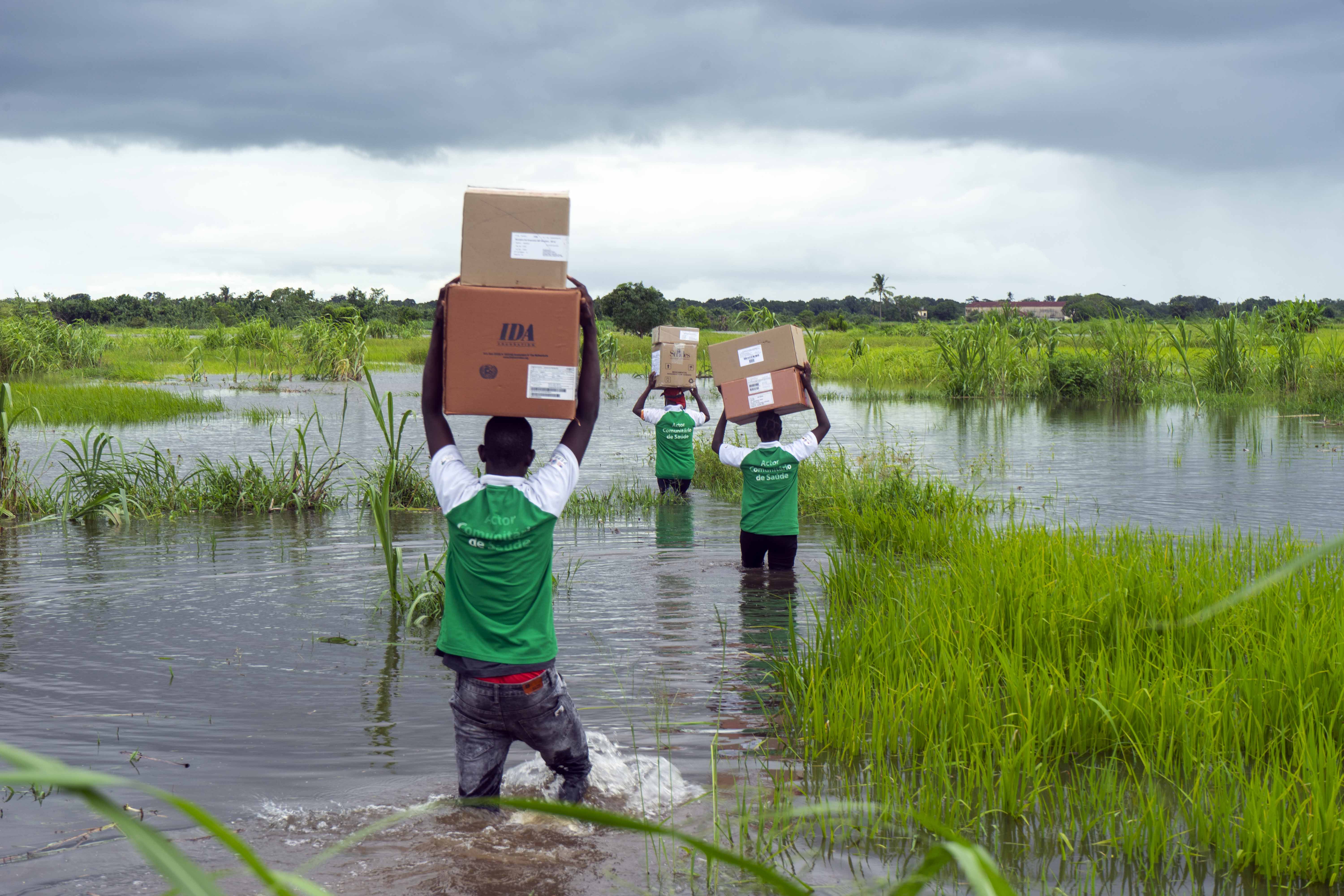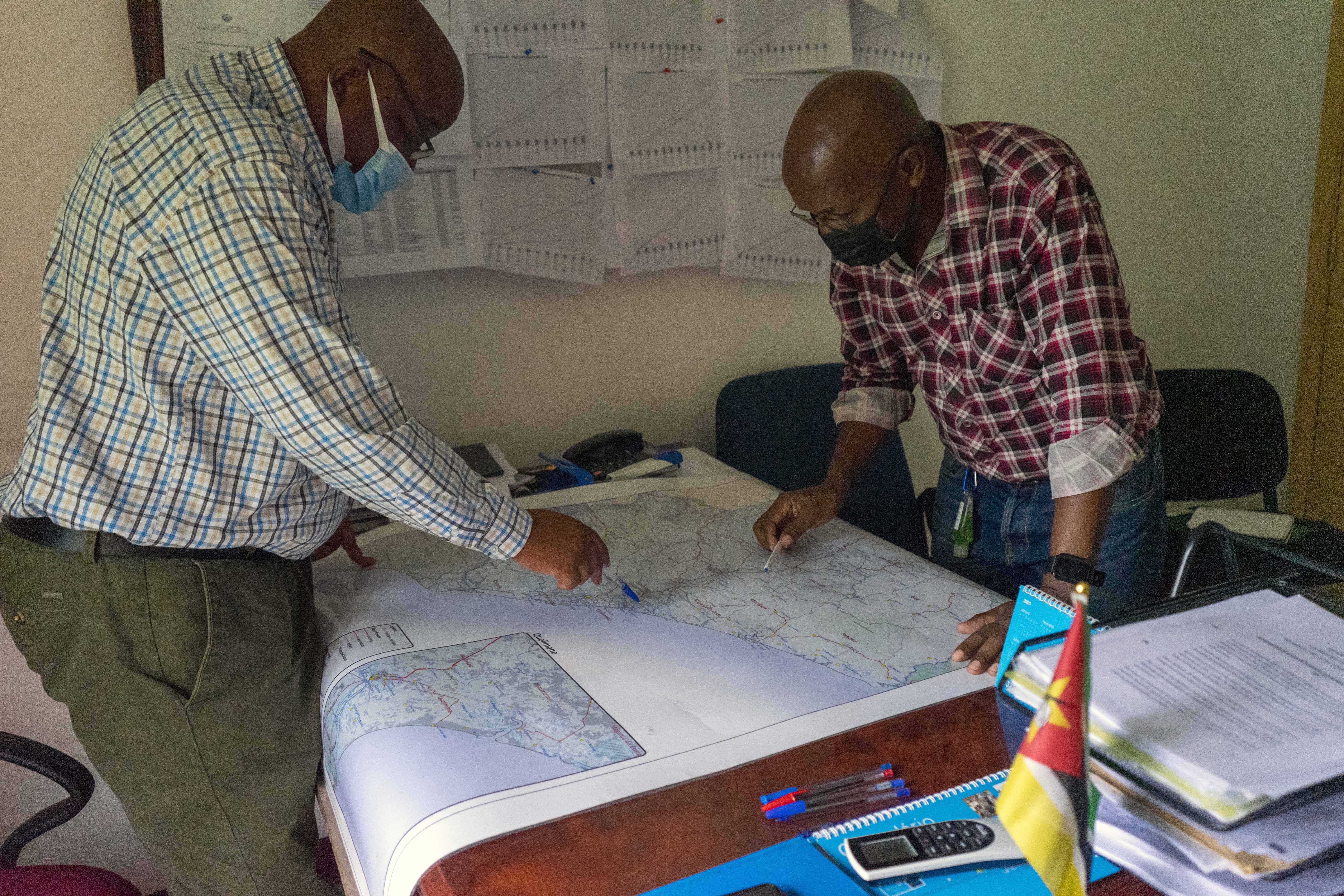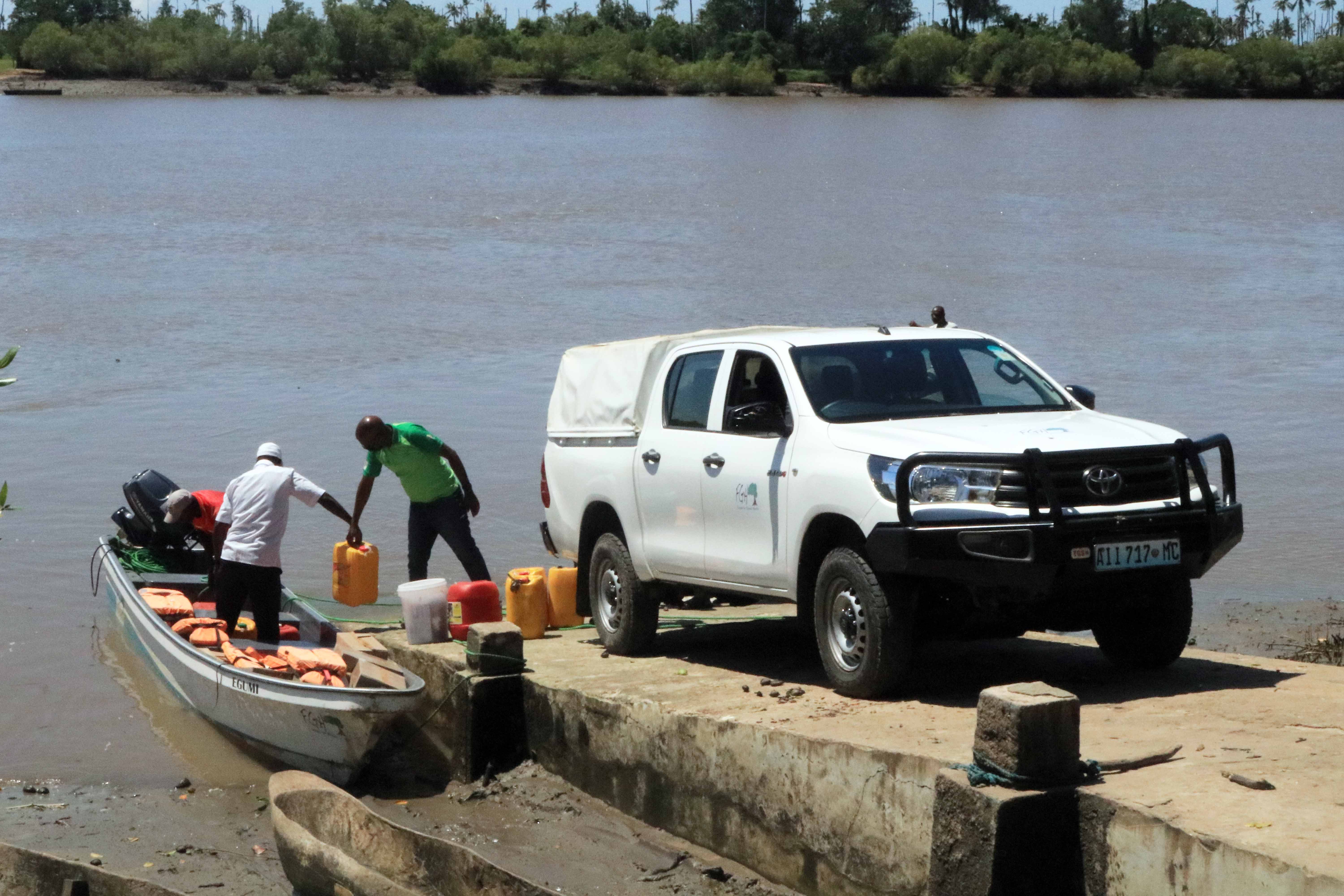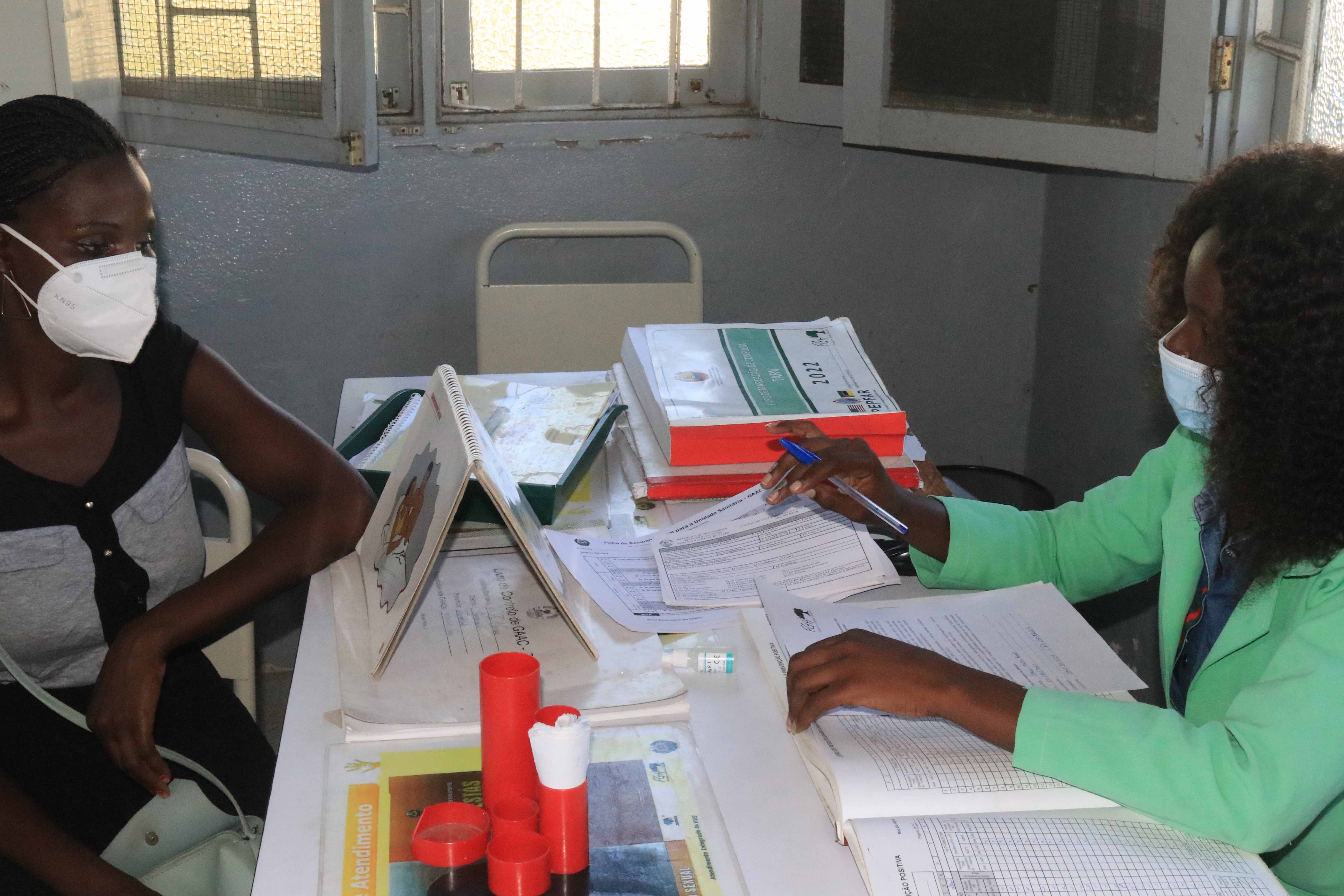
“The medicine I am using is important to me because it helps me to be healthier.”
Manuela dos Santos António, Namacurra District
This simple statement by Manuela dos Santos António perfectly encapsulates the reason why Friends in Global Health (FGH) was compelled to mobilize technical staff, vehicles, boats, and volunteers - to ensure that health facilities (HFs) could continue to offer combination antiretroviral therapy (ART) to persons with HIV (PWH), even in the face of two fierce tropical storms, Ana and Gombe, that flooded large parts of Zambézia Province and threatened access to healthcare for thousands of people.
Tropical Storm Ana hit northern Mozambique on January 24, 2022. Ana caused hundreds of injuries, several deaths, and left a trail of destruction that cut electricity, and destroyed hospitals, schools, houses, crops, roads, and bridges. Further aggravating the situation, less than two months later, on March 15, 2022, the same region was hit by the intense Tropical Cyclone Gombe.
The FGH supported district of Namacurra, lies in a basin that is prone to flooding and this year’s floods were much more severe compared to prior seasons. “We could not access Macuse Administrative Post, (…) we had many difficulties sending medical supplies and medicines needed at health facilities (…)” explains Dr. Saquina Messia – Namacurra Chief Medical Officer.

Namacurra is at the epicenter of the Mozambican HIV epidemic with more than 34,000 persons with HIV (PWH) currently receiving potentially life-saving ART at 10 HFs supported by FGH. Five of these HFs, each currently providing ART to over 14,500 individuals, were isolated by the flooding. “It was a dramatic event” explains Dr. Geraldo Duarte, Namacurra Health Director. The widespread flooding could have resulted in “an aggravation of epidemics, because we could have had people without access to ARVs, (…) this could have had serious clinical consequences.”

To avoid this, FGH staff continued to support HIV and TB services in isolated HFs. As soon as the storm passed, FGH transported 1.5 tons of essential medicines to the Macuse Health Facility. This was not an easy task. Medicines were transported by car for 88 kilometers, followed by boat for another 15 kilometers, and then a motorcycle, bicycle, and even on foot. “When all access roads were blocked, we received the medicines by water, which is not an easy process," added Nelson Jafar, head of Macuse Sede HF.

Manuela dos Santos António, a 23 year old farmer and mother of two children, lives in the flooded area of Macuse. “I had difficulties getting to the health facility because the roads were full of water; but even then, I managed to get to the health facility to collect my [ARV] medication” says. With FGH support, Manuela has been on ART since 2017. She is fully aware of the importance of not interrupting ART.
The Avante Program is funded by PEPFAR through the Centers for Prevention and Disease Control (CDC). By the end of March 2022, the Avante Program was supporting over 320,000 PWH currently receiving ART.